>
I'm taking part in #samplesunday, which is a "tweeted" promotion for authors (if you want to find a few interesting excerpts from novels or stories, just search #samplesunday on twitter). I decided to feature the first chapter of DUST, my supernatural/mystery/dark horror novel, which has just been released as an ebook in the U.S. and U.K. (alas not Canada yet--but of course, the unelectronic version AKA a paper book is available.). The cover is done by Christopher Steininger--I love his interpretation of the story.
So, if you haven't read the first chapter of Dust before...here it is. Honestly, it's probably the best chapter I have written so far.
Dust
Copyright 2001 Arthur Slade All Rights Reserved
Chapter 1
Matthew Steelgate had five cents in his pocket and a yearning for chewing gum and licorice. He wasn't sure which he wanted most, but knew he could buy both and have at least a penny left over. He walked along the edge of the grid road, three miles from his family's farm and about two miles from Horshoe. The sky was cloudless.
The sun had shifted nearer to the earth in the last half hour, so near that the air crackled with heat. Matthew, following his mother's bidding, had worn a straw hat. Like his father, his neck was tanned brown, along with his face, hands, and forearms to the line where he rolled up his sleeves. The prairie had marked Matthew as one of its own. He understood the connection between himself and the land, understood that he belonged there; when the wind blew, when the rain dotted his face, when the snow fell, he belonged. When the sun darkened his skin, he knew the invisible rays were also working on the field of wheat beside him.
He patted his shirt pocket and was rewarded with a muffled clinking. He had spent three weeks saving this cache of coins, payment for helping his older brother Robert with chores. Three weeks dreaming about town. About candy.
A daddy longlegs darted out of a crack in the road and Matthew squashed it underfoot, then examined the flattened body. It looked like a gray flower pressed and dried between pages in a book. Its insides were outside now. A friend had said that killing a spider meant seven days of rain, so Matthew squished any he could. Next, he crushed a few grasshoppers inching across the road, but he quickly grew bored.
Even though he was tired, he quickened his pace. He had a good head start on his parents, but if he dawdled he'd soon hear the clop clop of the horses and the rattling of chains on the wagon, followed by his father's voice, saying, "Hello there, partner. Going our way?"
He hoped to reach town before his parents. That would be an accomplishment. He would stand proudly on the corner of the street, waving as they arrived to pick up nails and tractor parts. He'd shout out, "See, Mom, I made it. My legs aren't too short." That'd show her. She had told him to ride in the wagon, but he'd convinced her that he could travel on his own, by running three times around the table as fast as he could. He'd only knocked over one chair. His father had laughed. His mother had relented.
A low, distant rumble made him think of thunder. But thunder needed clouds, didn't it? And the sky was clear as glass.
The sound came from behind him. He turned and saw a truck on the horizon, a black, sun-streaked square that wavered in the heat. It vanished into a gully, then appeared again seconds later. He walked into the shallow ditch, wading through the belly-high yellow grass, and watched the truck approach.
A grasshopper, holding tight to a strand of swaying grass, banged its head against Matthew's back, making a small tobacco spit stain. When the truck neared, the grasshopper leapt into the air, wings clicking.
Matthew didn't recognize the truck. Very few people around Horshoe drove their vehicles; most saved the gas for tractors. The truck looked old, an ancient vehicle from a far-off time, its big knobby tires spinning. The sun flashed across the windshield, making him squint.
He stared at the curved fenders, watched as the steel-spoked wheels turned more and more slowly. The truck stopped, rocked back and forth; the grumbling noise died, and the prairie was silent. No crickets singing. No grasshopper wings whirring. All was still. Matthew breathed in, waiting for a sound. For motion.
Then the door on the other side opened, hinges screeching. In the ditch, Matthew was low enough to see under the truck. A dark boot hit the ground, then another.
A man walked around the front of the vehicle and stopped near the edge of the road. He gazed across the prairie, like he was just catching a breath of fresh air. He was tall and lean, wearing a long, beige trench coat. His shoulders were a wide crescent. His face, even under the shade of his circular brimmed hat, was pale.
He must be hot, Matthew figured.
The man looked toward the ditch, almost as though his name had been whispered. His eyes were hidden behind round, dark-lensed glasses.
"Hello," the stranger said. His voice reminded Matthew of dry leaves rustling across autumn earth. "How are you today, young man?"
"Good," Matthew answered.
The man smiled. "What's your name?"
"Matthew." Matthew shifted his weight from one foot to the other. He clutched a handful of grass.
"Well, Matt, where are you traveling to?"
"Town."
"Why you going there?"
"To buy gum ... and ... and licorice."
The tall man nodded. "Now, that's a very noble pursuit." He ran a finger below his eye as if wiping away a tear. He was wearing black leather gloves. Matthew wondered if his hands were soft. He didn't know anyone who wore gloves during summer. The man smiled again. "Tell me, Matt, have you ever ridden in a truck?"
"Sure, lots of times," he said, nodding.
"Would you like to ride in my truck?"
Matthew let go of the grass. He looked to the east, down a long, straight road. "Mom and Dad are coming along soon," he explained.
The man was silent, as if what Matthew had said required deep thought. "Wouldn't you like to beat them to town? Wouldn't that be nice?"
Matthew narrowed his eyes.
"It would, wouldn't it?" The man's soft voice carried easily across the space between them; it seemed to Matthew that the stranger was whispering right into his ear. "I can see that gum too, Matt. It's on the second shelf in the pool hall candy counter. Red Hand Chewing Gum. It's pink, it's wrapped in waxed paper, and it's in the shape of a cigar. It's waiting for you. Would you like to see it?"
Matthew's tongue explored his moist cheeks. He shifted his weight from side to side.
The man opened the passenger door and gestured. "Your place is here." He paused. "The gum is waiting for you."
Matthew breathed in and walked slowly up the ditch. He stopped on the road, looked in the door.
"Go ahead."
Matthew peered at the dusty seat. He pictured the gum sitting on the shelf, saw himself pointing, saw Mr. Parsons reaching for it. He would get to town so much faster with a ride. He stepped onto the mud rail, then pulled himself into the truck.
The door closed softly.
The stranger was seated on the driver's side. How had he gotten there so quickly? The man sat still momentarily, humming softly and rubbing his chin as though pondering deeply. Then he slid the gearshift down. They rolled smoothly ahead. Matthew couldn't remember him starting the motor.
The man's skin, which showed between the glove and the sleeve of his coat, was the color of the moon. Muscles writhed beneath that ivory layer as the stranger turned the wooden steering wheel and they headed to the middle of the road. The truck accelerated gracefully; weeds became a yellow blur. The engine was a distant hum.
Matthew heard a muffled rattle. He peeked through the oval-shaped back window. A stack of red clay jars, about the same size as his mom's honey pots, were all tied together. They glowed. Or was it the way the sun caught their sides? A pink hair ribbon was trapped under one, flapping. Beside them were several bundles wrapped in burlap. Strips of shiny metal, about six inches wide and six feet long, sat piled on the far side.
"Do you like being young?" the man asked.
Matthew didn't understand the question. He examined the stranger's smiling face. After a moment's thought he answered, "Yes."
"I was never young," the man said. He tipped his hat back, showing glistening white hair. "Do you believe me? I was never young."
Everyone was young at one time—Matthew knew that. His father had once been a little boy and his mother a little girl, and even his grandma had been a kid long before her skin wrinkled and sagged and her teeth fell out. But he also knew that adults understood more about the world than he did, and he trusted in the wisdom of the giants who hovered above him.
"I think I believe you."
The pale man nodded. The windows were rolled up; the cab grew hot and the air smelled stale. Sweat lined Matthew's forehead.
They drove on, and over time he grew more comfortable with the stranger. They passed an abandoned farm, the house gray and paintless, windows black like empty eye sockets. The wind had ripped the shingles from the roof. The barn leaned to one side, threatening to collapse. Matthew knew the drought had killed this place. It was a monster made of dust—it had dried up the crops so the cows couldn't eat and driven away the folks who had once lived there. His mom worked hard to keep that same dust out of their house, stuffing rags in the bottom of the door and along the windowsills. Despite her efforts, the grit always found its way into the cupboards, the beds and their food.
The truck's motor lulled him and time shifted to a slower speed. He watched roads go by, more ghost farms, as though they were traveling in a loop. He pictured the gum again, tried to keep the image in his head.
Then towering grain elevators appeared on the horizon. The rail yard and a collection of houses became visible as the truck cleared an incline.
"What is this town called?" the man asked. Time snapped back to normal speed.
"Horshoe," Matthew answered, scratching at his arm. The man nodded.
They drove past the access road and the stranger studied the town as they went by. Matthew stared too, his heart speeding up. He peeked through the back window as the elevators were eclipsed by a hill.
"Why don't we stop?" Matthew asked.
The man smiled. "Because you're a child. And you know what it's like to be young." He paused. "I was never young. I was never, ever young."
To be continued
Sales pitch to follow...
The full book is available on Amazon.com and Amazon.uk
And, of course, the "paper" book is available at a store near you.
...here endeth sales pitch. Happy Sunday to you.
Art
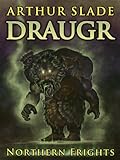
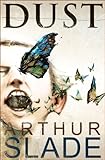
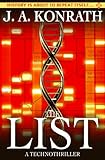
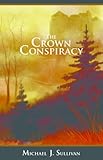
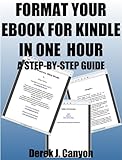


 Today,
Today,



